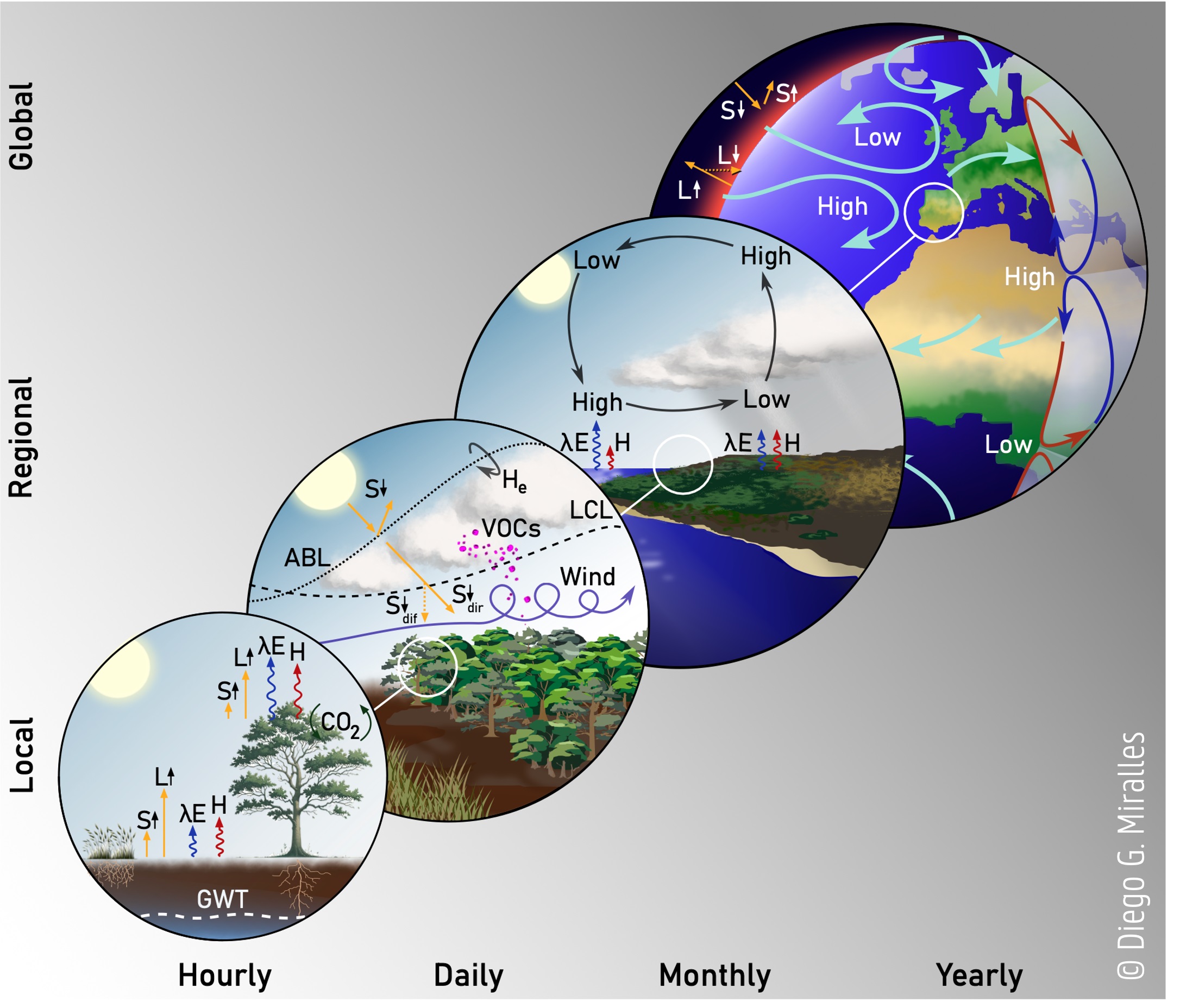7º seminario del XV Ciclo de Seminarios del Departamento de Sistemas Físicos, Químicos y Naturales
Herramientas para el estudio de la contaminación atmosférica
Información del evento
- Lugar:
- Edificio 24, aula B13
- Inicio:
- |
- Finalización:
- |
- Ponente:
Diego G. Miralles
Tenemos el placer de invitaros al 7º seminario del XV Ciclo de Seminarios del Departamento de Sistemas Físicos, Químicos y Naturales que lleva por título "How do biophysical feedbacks regulate climate extremes? " y que será impartido por Diego G. Miralles, de la Universidad de Gante, Bélgica.
. El seminario se celebrará a las 11:00 horas del viernes, 28 de junio de 2024, presencialmente en el aula B13 del edificio 24.
How do biophysical feedbacks regulate climate extremes?
Land conditions, and vegetation in particular, play a fundamental role in shaping Earth's energy, water, and carbon cycles. Vegetation consumes significant water resources through transpiration and interception, regulates atmospheric CO2 concentration, alters surface roughness, and determines both net radiation and its partitioning. This influence propagates through the atmosphere, from micro-climate scales to the atmospheric boundary layer, subsequently impacting meso-scale and large-scale circulation, as well as the planetary transport of heat and moisture. Understanding the feedbacks between land and atmosphere across scales is crucial for predicting hydro-climatic extremes, such as droughts or heatwaves. It is believed that the compound occurrence of these events has been exacerbating in recent decades, partly due to the influence of climate change and land use on key land–atmosphere feedbacks that regulate them. While this finding is concerning, it also opens the door to improve (sub-)seasonal predictions and to leverage land geoengineering as a tool to mitigate extremes occurrence.
This presentation will explore the complex feedbacks between land and atmosphere, particularly focusing on extreme events like droughts and heatwaves, which cause direct societal impacts, agricultural loss, forest mortality, and water scarcity. Key questions will be addressed: How do extreme meteorological conditions impact ecosystem evaporation? In what ways does vegetation regulate the atmospheric boundary layer, affecting the intensification and propagation of these extremes? How do these biophysical feedbacks contribute to the inflow of heat and moisture to downwind regions, potentially leading to the propagation of extreme events? What are the consequences of land feedbacks for human heat stress during extreme events? How can information on land conditions be used for the timely prediction of these events? The goal of this presentation is not to provide definitive answers to these questions, but rather to present new results from my team's work that may help advance our collective understanding of land feedbacks and the role they play in climate.

